Ecumenopolis: City Without Limits (2011)
장르 : 다큐멘터리
상영시간 : 1시간 33분
연출 : Imre Azem
시놉시스
Ecumenopolis: City Without Limits" tells the story of Istanbul and other Mega-Cities on a neo-liberal course to destruction. It follows the story of a migrant family from the demolition of their neighborhood to their on-going struggle for housing rights. The film takes a look at the city on a macro level and through the eyes of experts, going from the tops of mushrooming skyscrapers to the depths of the railway tunnel under the Bosphorous strait; from the historic neighborhoods in the south to the forests in the north; from isolated islands of poverty to the villas of the rich. It's an Istanbul going from 15 million to 30 million. It's an Istanbul going from 2 million cars to 8 million. It's the Istanbul of the future that will soon engulf the entire region. It's an Istanbul nobody has ever seen before.
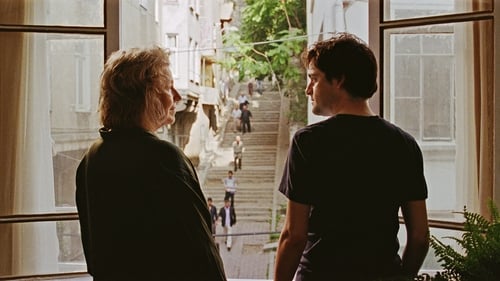
터키계 독일인 네자트는 자신의 아버지가 데리고 온 여자친구 예테르가 매춘부라는 사실이 마음에 들지 않지만 그녀가 터키에 있는 딸을 위해 돈을 벌고 있다는 사실을 알게 되고 예테르를 이해하게 된다. 하지만 아버지의 실수로 예테르가 목숨을 잃게 되고 이 사건을 계기로 네자트는 예테르의 딸을 찾아 터키의 이스탄불로 간다. 한편 예테르의 딸, 아이텐은 이스탄불에서 정치운동을 하다가 경찰에게 쫓겨 독일로 피해 와 있다. 아이텐은 우연히 만난 로테라는 독일 여학생의 도움을 받아 그녀의 집에 머무르면서 그녀와 연인 사이로 발전하게 된다. 로테의 보수적인 어머니 수잔느는 이러한 그녀들의 행동과 생각들을 받아들일 수 없다. 그러나 아이텐은 독일 경찰에게 잡혀 터키로 강제 송환되고 감옥에 갇히게 된다. 로테는 터키로 가서 아이텐을 풀어주려고 노력하지만 희망이 보이지 않는다. 영화 소개. 감독인 파티 아킨은 실제 자기 주위 사람들의 이야기와 전작들부터 추구했었던 독일과 터키와의 관계에 대한 내용을 바탕으로 이 각본을 썼다. 이 영화의 마지막 장면에서 수잔느와 아이텐이 껴안을 때 그 옆에 보이는 책상 위에 독일과 터키의 국기가 마치 껴안는 것마냥 나란히 꽂혀 있음을 볼 수 있는데 이것은 감독의 친구이자 파트너인 안드레스 티엘이 놓아둔 것이다. 수잔느와 아이텐이 껴안는 모습은 바로 독일과 터키의 진정한 화해를 의미한다고 볼 수 있다. 국가 간 갈등, 세대 간 갈등, 남자와 여자 간 갈등, 보수와 진보 간 갈등 등을 뛰어넘기 위해서는 서로를 받아들이려는 마음가짐이 필요하며 바로 그러한 일들이 실천되는 곳이야말로 천국이라는 것을 영화는 역설하고 있다.
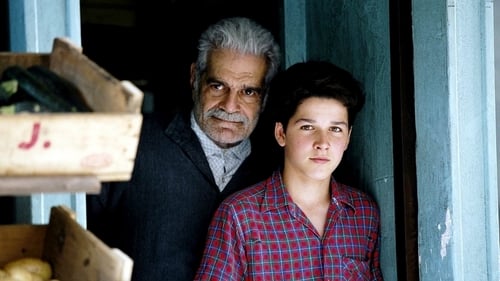
파리 근교 노동자들의 마을 블루로드에 살고 있는 모모와 이브라힘. 모모는 아버지와 단 둘이 살고 있지만, 다정한 부자 관계와는 거리가 멀다. 모모의 집 근처 가게 주인인 이브라힘은 그런 모모에게 다정하게 대해주고, 두 사람은 삶과 인간에 대한 다양한 생각을 나누며 서로에게 진정한 아버지와 아들이 되어간다.
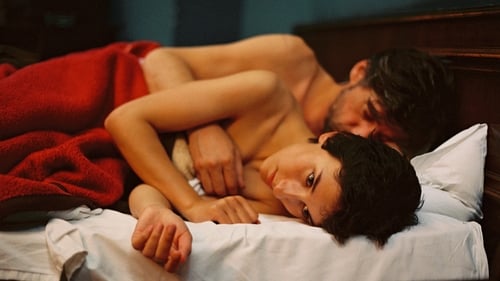
‘시벨’은 개성과 생기가 넘치는 스무살 여자. 하지만 그토록 꿈꾸는 자유 만큼은 온전히 그녀의 것이 될 수가 없다. 엄격한 집안에서 자란 시벨에겐 그녀의 손목을 잡았다는 이유만으로 남자 친구에게 폭력을 행사하는 우악스런 오빠들이 있으며 강압적인 부모 역시 딸이 밖으로 나도는 것을 가만히 내버려 두지 않는다. 자유를 만끽하지 않으면 살 수가 없는, 야생화 같은 여자. 시벨이 답답한 집에서 탈출하는 방법은 오직 하나, 같은 터키 출신의 남자와 결혼해서 집을 나오는 것 뿐이다. 그런 그녀에게 어느 날 구원의 존재가 나타났으니, 바로 ‘차히트’다. 아내와 사별한 후 살아가야 하는 의미를 잃어버린 채 하루하루를 고독 속에 갇혀 살던 그는 자신과 위장 결혼을 해달라는 시벨의 간청을 고민 끝에 들어 주기로 결심한다. 결혼 후 약속대로 서로 간섭하지 않고 각자의 생활을 즐기는 두 사람. 하지만 그건 앞으로 두 사람 사이에 일어날 사건들의 시작에 불과 했는데…
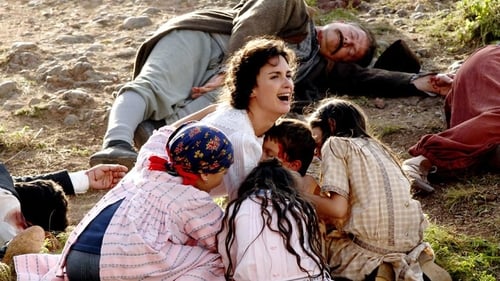
The Lark Farm is set in a small Turkish town in 1915. It deals with the genocide of Armenians, looking closely at the fortunes, or rather, misfortunes of one wealthy Armenian family.

In the quiet foothills of Turkey, Faik lives an isolated existence. When his second son brings his boys for a visit, Faik takes the opportunity to pontificate about the law of the land, as he sees it. He shares one unsolicited thought after the next, most particularly focusing on the elusive nomads whom he suspects have been trespassing on his property. The day and night wear on, and each member of the clan takes his turn entrusting the film's audience with his own dark secret.

In this David and Goliath story for the 21st century, a group of proud Scottish homeowners take on celebrity tycoon Donald Trump as he buys up one of Scotland's last wilderness areas to build a golf resort.

A safecracker takes a job where he must go to Istanbul and steal a scepter that once belonged to the god Gilgamesh but is now in the temple of a secret cult.

When Dale and Frank spark an environmental catastrophe that threatens to destroy the entire planet, these clueless hosers must travel back in time to set the future right.

Byzance uses a text by Stefan Zweig to describe the Ottoman conquest of the city in 1453. Before he turned to feature filmmaking in 1968 with Naked Childhood, Pialat worked on a series of short films, many of them financed by French television. Byzance is one of Pialat’s six Turkish shorts.

All of Pialat's Turkish films are uniquely interested in the country — especially Istanbul — as it was, not just as it is at the precise moment that Pialat is filming it. History informs these films in a big way, with the voiceover narration (which incorporates excerpts from various authors) introducing tension between the images of the modern-day city and the descriptions of incidents from its long and rich history. Istanbul is probably the most conventional documentary of Pialat's Turkish series, providing a general profile of the titular city, its different neighborhoods, and the different cultures and ways of living that coexist within its sprawling borders. As the other films in the series also suggest, Pialat sees Turkey, and Istanbul in particular, as a junction point between Europe and the East, between the old and the new, between history and modernity.

Maître Galip is the most poetic and powerful of Pialat's Turkish Chronicles, using the poems of Nazim Hikmet to accompany a series of evocative images of ordinary working class people in Istanbul. This was the film that Pialat himself claimed was the most complete realization of what he was aiming for with his Turkish documentaries. It's not difficult to see why this was his favorite: here he abandons the historical commentary and documentary observation of the other shorts in favor of an emotional emphasis on the lives of the poor and the unemployed.A short doc by Maurice Pialat.

La Corne d'or is mostly concerned with religious ritual, examining the mosque (and former cathedral) discussed in Byzance. As a contrast against Istanbul's status as a center of historical religious conflict, Pialat — drawing here on texts by the French poet Gérard de Nerval — also describes the city as a place of strange ethnic and religious harmony, with representatives of various cultures and religions living in close contact. He emphasizes the city's hybrid culture, its blend of Southern European and Arab influences, reflected in both its people and its very construction.

Pehlivan focuses on a three-day wrestling competition, an ancient tradition that dates back over a thousand years to the time of the Ottoman Empire, originating in the games the soldiers would play to entertain themselves in between battles. Maybe that's why there's more than a hint of homoeroticism in the way the wrestlers oil themselves up with grease, making sure to cover every inch of their bodies so that their opponents will be unable to get a grip. Pialat's closeups emphasize the men's muscular bodies jammed together and sliding off one another, posed in intimate, twisted arrangements, struggling desperately for a grip on each other's bodies. Arms are jammed down pants, one of the only places there's some potential for a handhold, and the whole thing is very suggestive and sensual, a form of intimate male contact that's sanctioned as a show of strength and masculinity.

Short doc by Maurice Pialat. The first film in the series set at Turkey, Bosphore, is also the only one that was shot in color.

This deeply human documentary examines the subject of environmental destruction, highlighting the impoverished migrant workers who are chopping down the Amazon rainforest to create charcoal for pig iron production used primarily in the automobile industry. The film examines the children and elders and their daily lives and work as they burn timber in igloo-looking huts, their bodies charred gray for $2 a day, struggling to survive.
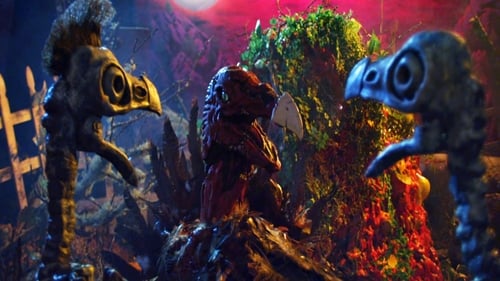
Fowl-mouthed villain Turkie carves through the likes of a rapping grandma, a mindless puppet, a wig-wearing inventor, a bisexual space worm, and their equally ridiculous friends on his quest to recover the last copy of "ThanksKilling 2". Also known as "Turkeys, In, Space!".
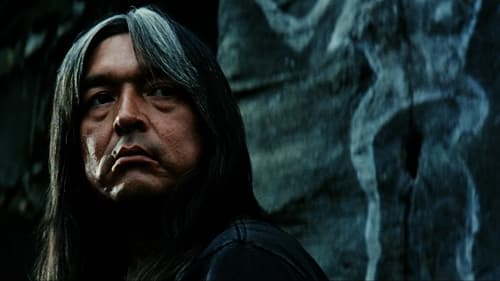
A white lawyer finds his values shaken when he is paired with an angry Indigenous activist who insists on kidnapping the head of a logging company to teach him the price of his destruction.

Tom Turkey and his friends play their harmonicas so enthusiastically that they nearly destroy the general store.
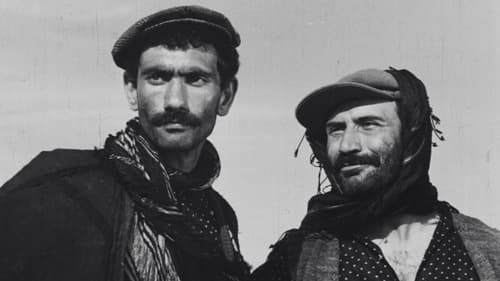
In Deliviran, a village near Urfa close to the Syrian border, Hidir’s chief is involved in smuggling and gets shot. Hidir tries to stay out of illegal activities but circumstances contrive to push him in the opposite direction until he accepts to take a herd of sheep across the border.

Planning to take any job she can get in order to save enough money and leave Turkey for the U.S., Mina is hired at an Istanbul café as a fortune teller who reads the dregs in coffee cups. She discovers she has the ability to offer comfort and insight to the customers who are just as lost in the wilderness as she is.











